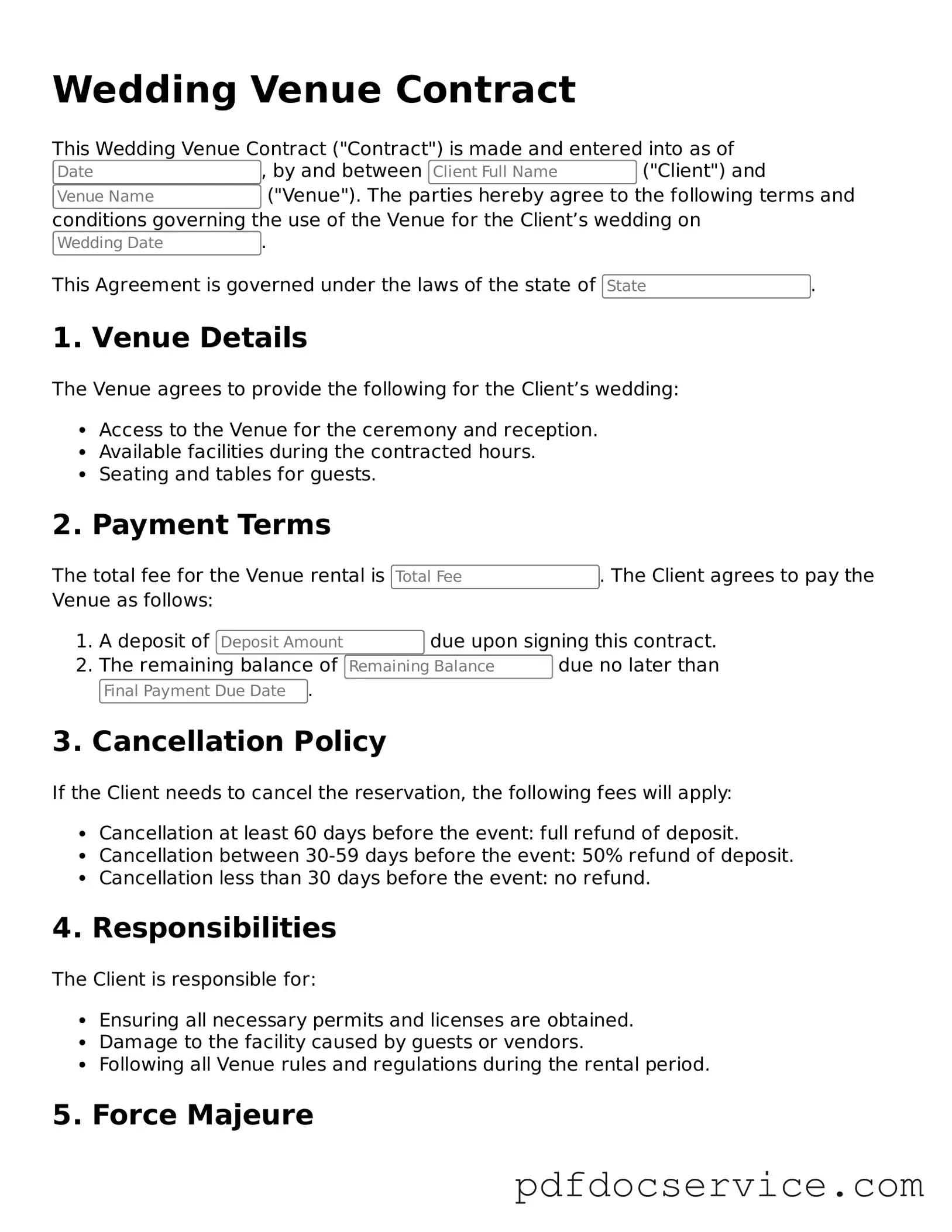Blank Wedding Venue Contract Form
The Wedding Venue Contract is a legal document that outlines the terms and conditions for renting a venue for a wedding ceremony and reception. This contract serves to protect both the couple and the venue owner by clearly defining responsibilities, payment schedules, and cancellation policies. Understanding this form is essential for ensuring a smooth planning process and a successful event.
Open Wedding Venue Contract Editor

Blank Wedding Venue Contract Form
Open Wedding Venue Contract Editor

Open Wedding Venue Contract Editor
or
Get Wedding Venue Contract PDF
Finish the form now and be done
Finish Wedding Venue Contract online using simple edit, save, and download steps.